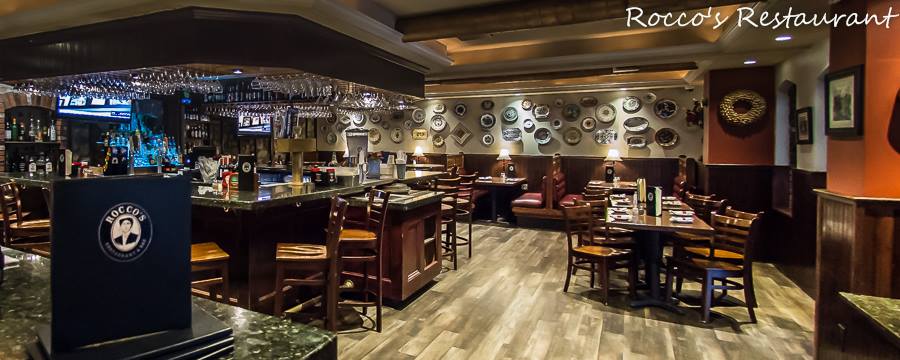By David Mendonça, Contributor (*)

In the midst of their East Coast tour, three of contemporary fado’s best young talents–Marco Oliveira, Tânia Oleiro and Sandro Costa–arrive at Rocco’s Restaurant in Wilmington, Massachusetts to perform for a small group of new and old friends. They have played non-stop for three days, including shows in New York City, Massachusetts, and Rhode Island, and will leave tomorrow for a sold-out show in Washington, DC before returning on Monday to Lisbon.
Rocco’s is ready for them. As the owner, Joe Cerqueira, draws the blinds and introduces the artists, we are transported to that shadowy street in Lisbon, lucky to have seats and confident of an excellent afternoon of fado. Appetizers, wine, entrées–all are served “à Portuguesa,” with a minimum of fuss and a maximum of quality.
Perhaps no other environment is so hospitable to the fado as a small restaurant. With ten or so tables, and perhaps 30 people, there is no need for amplification at Rocco’s. Marco Oliveira’s earnest lyrics, many of which reach deep into fado’s history, ring out clearly. Oliveira is also playing the classical guitar, joined by Sandro Costa on the Portuguese guitar. During their (short, purely instrumental pieces), the two find a dynamic, expressive tension that leaves us hanging on every note. After the first set, it is time to relax, to talk, to reflect on the tales they’ve told.
As the room quiets down, Tânia Oleiro sings. Oleiro is a pure fadista, one of a rare breed for her generation. She sings standing behind the musicians, one hand on each of their shoulders. She sings with a quick wit, leading and following in an improvised conversation with the Costa, both of them supported by Oliveira’s nimble viola. Together, they explore rhythms, harmonies, words that leave us speechless.
In the fado houses of Lisbon, they say that a fadista is not only the person who sings or plays, but also the person who listens. This is a manifestation of fado’s communal spirit, an energy that has kept it vital for almost 200 years. Everyone at Rocco’s sings to themselves, and some are tempted to sing for us–but only one does. It is a heartfelt, beautiful lyric sung over a very traditional fado music. Like everything in the fado, the moment is a reflection of our collective past, present, and future.
The music is over, but we linger, saying our long goodbyes.
If you’ve wandered long enough and late enough through Lisbon’s darkened streets, perhaps you’ve found a special place to hear fado. The door might be only slightly ajar, and maybe there’s not even a sign to greet you–but the music beckons. Inside, a small group of people listens intently as one singer after another recounts tales of love and loss. The Portuguese guitar provides a counterpoint, asks why. The viola marks a steady rhythm. And at the end of the night, something inexplicable has happened: the fado has happened
.
By David Mendonça, Contributor (*) a Luso-American with roots in the Azores, is a contributor to the Feel Portugal Digital Magazine. Passionate about fado, his articles also appear on his blogs Fado Today(English) and Fado Hoje (Portuguese). He lives in New York State. David is also the president of Portuguese Amecican Cultural Exchange, Inc (PACE), a 501c3 corp.


